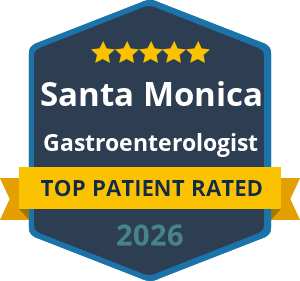
Esophageal cancer is a serious and potentially life-threatening disease that affects the esophagus, the muscular tube that connects the throat to the stomach. It is often diagnosed at an advanced stage, making it challenging to treat. Understanding the risks, symptoms and treatment options for esophageal cancer is crucial for early detection and improved outcomes.
Risks for Esophageal Cancer
Several factors can increase the risk of developing esophageal cancer. These include:
- Tobacco and Alcohol Use: Smoking tobacco and heavy alcohol consumption are significant risk factors for esophageal cancer. The combination of smoking and drinking greatly increases the risk compared to either factor alone.
- Gastroesophageal Reflux Disease (GERD): Chronic acid reflux, a condition characterized by stomach acid backing up into the esophagus, can lead to inflammation and damage to the esophageal lining, increasing the risk of cancer.
- Obesity: Being overweight or obese can raise the risk of developing esophageal cancer, particularly a type known as adenocarcinoma.
- Dietary Factors: A diet low in fruits and vegetables and high in processed meats, fried foods, and spicy foods may increase the risk of esophageal cancer.
- Age and Gender: Esophageal cancer is more common in older adults, with the risk increasing with age. Men are also more likely than women to develop esophageal cancer.
Symptoms
Esophageal cancer often does not cause symptoms in its early stages. However, as the cancer progresses, individuals may experience:
- Difficulty Swallowing (Dysphagia): One of the most common symptoms of esophageal cancer is difficulty swallowing, particularly solid foods.
- Unintentional Weight Loss: As swallowing becomes more difficult, individuals may experience weight loss without trying.
- Chest Pain or Pressure: Pain or discomfort in the chest or back may occur, especially when swallowing.
- Heartburn or Indigestion: Chronic heartburn or indigestion, particularly if it does not improve with over-the-counter medications, may be a sign of esophageal cancer.
- Hoarseness or Cough: Hoarseness, chronic cough, or a persistent sore throat may indicate esophageal cancer that has spread to the throat.
Treatment Options
Treatment for esophageal cancer depends on the stage of the disease and may include:
- Surgery: Surgical removal of the cancerous tissue is often recommended for early-stage esophageal cancer. This may involve removing a portion of the esophagus (esophagectomy) or the entire esophagus (esophagectomy).
- Chemotherapy: Chemotherapy uses powerful drugs to kill cancer cells or slow their growth. It may be used before surgery (neoadjuvant chemotherapy) to shrink the tumor or after surgery (adjuvant chemotherapy) to kill any remaining cancer cells.
- Radiation Therapy: Radiation therapy uses high-energy beams to destroy cancer cells. It may be used alone or in combination with chemotherapy to treat esophageal cancer.
- Targeted Therapy: Targeted therapy drugs target specific molecules involved in cancer growth and progression. They may be used in combination with chemotherapy for advanced esophageal cancer that has not responded to other treatments.
- Palliative Care: Palliative care focuses on relieving symptoms and improving the quality of life for individuals with advanced esophageal cancer. It may include pain management, nutritional support and emotional support for patients and their families.
Esophageal cancer is a serious disease that requires prompt diagnosis and treatment. Knowing the risks, symptoms, and treatment options for esophageal cancer can help individuals seek medical attention early, improving their chances of successful treatment and survival.
If you experience any symptoms of esophageal cancer, such as difficulty swallowing or unexplained weight loss, it is essential to consult with your primary care provider, who may refer you to a gastroenterologist for evaluation and appropriate management. Early detection and intervention can make a significant difference in the outcome of esophageal cancer. David P Yamini, MD, is a highly experienced gastroenterologist who can provide the most advanced treatment options for patients with esophageal cancer. Contact his office in Santa Monica, CA, to schedule an esophageal cancer evaluation and consultation.
Posted on behalf of




